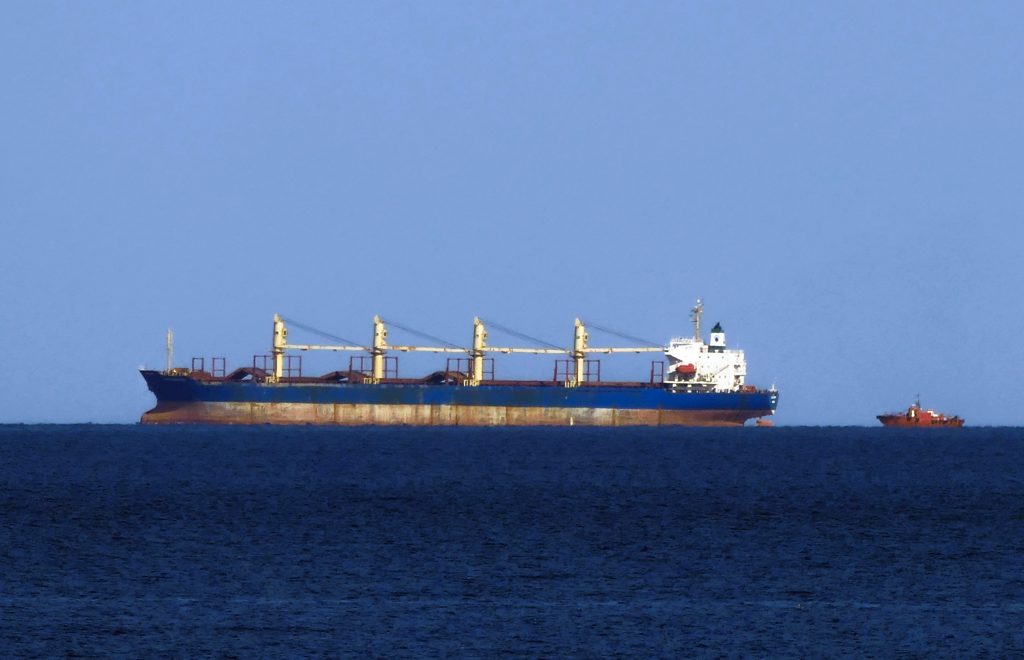
2023 review: Ukraine scores key victories in the Battle of the Black Sea

Speaking at his annual Valdai meeting in October 2023, Vladimir Putin confidently declared that Ukrainian Black Sea port Odesa is “certainly a Russian city.” The Kremlin dictator has long been notorious for such casual denials of Ukrainian statehood, but on this occasion he could not have been more mistaken. While Odesa has a rich legacy of ties to the Russian and Soviet imperial past, Putin’s full-scale invasion has turned the city decisively away from Moscow and cemented its status as the southern capital of an independent Ukraine.
When Russia first launched the full-scale invasion of Ukraine in February 2022, Odesa was one of the Kremlin’s key objectives. Capturing the Ukrainian port city would have allowed Moscow to cut Ukraine off from the Black Sea entirely and force the newly landlocked country to accept defeat. However, the invading Russians found their path toward Odesa blocked by the Ukrainian army at Mykolaiv. Meanwhile, Odesa residents rallied to prepare the defenses of the city, fortifying beaches and coastal areas to prevent the Russian navy from attempting any amphibious landings.
Instead of becoming the jewel in the crown of Putin’s new Ukrainian empire, Odesa has now emerged as the hub of Ukraine’s increasingly successful military campaign to win the Battle of the Black Sea. This process has been underway since the early weeks of the war. The first stage involved pushing Russian warships away from Ukraine’s territorial waters close to Odesa, beginning with the April 2022 sinking the Russian Black Sea Fleet’s flagship, the Moskva.
Two months later, Ukraine liberated Snake Island, a strategically important Black Sea outpost located some 120 kilometers southwest of Odesa. By midsummer 2022, Ukrainian forces were carrying out air strikes on targets in Russian-occupied Crimea with increasingly regularity. As the largest city in southern Ukraine and the headquarters of the Ukrainian navy, Odesa was at the heart of these efforts.
Stay updated
As the world watches the Russian invasion of Ukraine unfold, UkraineAlert delivers the best Atlantic Council expert insight and analysis on Ukraine twice a week directly to your inbox.
The Battle of the Black Sea has escalated significantly during 2023. While international attention has focused on the largely static front lines of the Russian invasion in southern and eastern Ukraine, Russia’s Black Sea Fleet has been pushed out of the northwestern Black Sea, with most Russian warships retreating in recent months from their traditional home port of Sevastopol in Russian-occupied Crimea.
This success has proven possible thanks to a combination of daring Ukrainian commando raids and surgical strikes against Russian air defenses, logistical hubs, and shipping. Ukraine has used innovative new naval drones and Western-supplied missiles to damage or destroy a growing list of Russian vessels and hit key targets including the headquarters of the Russian Black Sea Fleet. Satellite footage and international media reports in early October 2023 confirmed that the bulk of the Russian Black Sea Fleet had been withdrawn from Crimea to the relative safety of Russian ports.
While it is far too early for Ukraine to declare victory in the Battle of the Black Sea, the successes achieved in the past year are arguably no less significant in terms of their impact on the wider war than the liberation of Kharkiv region and Kherson in the final months of 2022. In addition to forcing Putin’s fleet to retreat, Ukraine’s attacks on Russian-occupied Crimea have also significantly weakened the logistical networks that are essential for the resupply of the Russian army in southern Ukraine.
Crucially, Ukraine has also been able to ease the blockade of the country’s Black Sea ports. Russia began blockading Ukraine’s Black Sea coast on the eve of the full-scale invasion. This blockade was partially lifted by a UN-brokered Grain Deal in July 2022, but Russia was soon attempting to leverage its continued participation in the agreement to blackmail the international community. It came as no surprise when Putin officially confirmed Russia’s withdrawal in summer 2023, leaving the future of Ukraine’s maritime trade in doubt.
Ukraine responded to this latest setback by unilaterally announcing the establishment of a new humanitarian maritime corridor for merchant vessels sailing to and from Ukraine’s Black Sea ports. This would have been unthinkable in the first months of the Russian invasion, but Ukrainian progress in the Black Sea region during summer 2023 meant a new corridor was a realistic possibility. By early December 2023, more than 200 ships had passed through Ukraine’s Black Sea humanitarian corridor, carrying over seven million tons of grains, metals, and other cargo.
Eurasia Center events

The reopening of Ukraine’s Black Sea ports creates a vital lifeline for the country’s battered wartime economy. While current monthly cargo volumes remain well below prewar averages, the steady flow of merchant shipping is providing a very welcome boost to Ukrainian GDP and bringing in billions of dollars in taxes. It is also reinvigorating the business climate in port cities including Odesa, providing work for local residents in a range of industries.
Ukraine’s progress on the Black Sea front of the war with Russia cannot be taken for granted. Despite suffering a string of naval setbacks, Russia retains the ability to attack shipping and strike Ukraine’s ports. Odesa has been bombed repeatedly since summer 2023, with attacks targeting the city’s port facilities along with the UNESCO-listed historic downtown area.
In order to win the Battle of the Black Sea, Ukraine needs to receive further support from the country’s partners. The most urgent requirement is additional air defense systems to guard Ukraine’s port infrastructure and territorial waters. Cities like Odesa much be protected if maritime trade is to continue. Longer range missiles are also needed to deter Russian warships. At sea, existing international efforts to clear the Black Sea of Russian mines are very welcome but should be significantly expanded.
Another critical factor is maritime insurance. A number of initiatives have already been launched to provide insurance coverage for cargo vessels serving Ukraine’s southern ports, but high rates remain an obstacle. While the Ukrainian authorities are attempting to address this problem, the country’s Western allies could potentially take steps to inspire far greater confidence among global insurance providers.
Keeping Ukraine’s ports open for business makes sense economically for Ukraine’s partners. It will save them money in the long run by reducing the financial burden of meeting Kyiv’s budgetary shortfalls as the war with Russia grinds on. More importantly, it also represents a significant step toward victory in the Battle of the Black Sea, which would bring Ukraine closer to defeating Russia’s invasion.
Oleksiy Goncharenko is a member of the Ukrainian parliament with the European Solidarity party.
Further reading
The views expressed in UkraineAlert are solely those of the authors and do not necessarily reflect the views of the Atlantic Council, its staff, or its supporters.

The Eurasia Center’s mission is to enhance transatlantic cooperation in promoting stability, democratic values and prosperity in Eurasia, from Eastern Europe and Turkey in the West to the Caucasus, Russia and Central Asia in the East.
Follow us on social media
and support our work
Image: The bulk carriers Beaver, Ability and DSM arrived at the ports of Greater Odesa through the temporary corridor controlled by the Ukrainian Navy. (Credit: Ukrinform/Cover Images)




